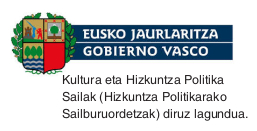Negative polarity items in affirmative clauses
DOI:
https://doi.org/10.26876/uztaro.92.2015.4Keywords:
Negative Polarity Items · Downward entailmentsAbstract
Polarity is considered a phenomenon of human language in which some lexical items show a behavior that is not predictable by general syntactic rules. In fact, the so- called positive-polarity items and negative-polarity items are sensitive to whether a sentence is affirmative or negative. However, it is well known that both PPIs and NPIs do not show a complementary distribution in the grammar of a particular language, which is again an unexpected fact. More precisely, NPIs are described as downward-entailment items. I.e. they bear a negation wide scope over some other items in an overtly negative sentence. Using data from Basque, this paper defines this downward entailment lexically as having a (lexical) scope over all the hyponyms of the item in the sentence. Moreover, downward entailment is shown to be a phenomenon closely related to the lexical features of the predicate rather than to the overt negation. Therefore, it is shown that some Basque NPIs appear in a wide range of overtly affirmative sentences, which are described in some detail.Downloads
Download data is not yet available.
License
Copyright (c) 2015 Uztaro

This work is licensed under a Creative Commons Attribution-NonCommercial-ShareAlike 4.0 International License.
Downloads
Published
2015-03-05
How to Cite
Odriozola Pereira, J. C., & Ondarra Artieda, A. (2015). Negative polarity items in affirmative clauses. Uztaro. Giza Eta Gizarte-Zientzien Aldizkaria, (92), 67–86. https://doi.org/10.26876/uztaro.92.2015.4




















